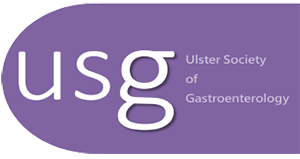The Role of Nutritional Status in Oesophageal and Gastro-Oesophageal Junction Adenocarcinoma
Authors
Douglas R, Singh U, Sutton E, Williams A, McGaughey S, Kennedy R, Turkington R.CDepartments / Institutions
Centre for Cancer Research and Cell Biology, Queens University Belfast, Northern Ireland. Department of Surgery, Belfast City Hospital, Northern Ireland.Publication Date
Autumn 2018Introduction
The incidence of oesophageal cancer is rising. Despite improvement in treatment, the five year survival rate is 12%. Patients present with dysphagia and weight loss which affects their nutritional status and their ability to tolerate treatment.
Aims
We aim to assess how patients’ nutritional status can affect their survival.
Methods
Retrospective review of clinical notes of patients diagnosed with early stage oesophageal (OAC) and gastro-oesophageal adenocarcinoma (GOJ) in the Northern Ireland Cancer Centre between 2013 and 2017. Patients’ demographics and survival data were collected. The body mass index (BMI), Lorentz ideal body weight and the nutritional risk index (NRI) were calculated. Being underweight is defined as having a BMI of less than 18.5. Normal NRI is defined as a score of more than 100.
Results
164 patients were diagnosed with early stage OAC/GOJ between 2013 and 2017 of whom 134 (81.7%) were male and the median age was 63.9 (31-82). Seven patients (4.4%) were underweight and their recurrence free (RFS) and overall survival (OS) were significantly worse [HR 0.36 (CI 0.13-1); p=0.04 and HR 0.33 (CI 0.12-0.94); p=0.028) respectively). Twelve (7.6%) have NRI of less than 100. NRI<100 strongly predicted for poorer RFS [HR 2.6 (CI 1.1-6.2); p= 0.023] and OS [HR 3.4 (CI 1.5-7.7); p=0.002].
Conclusion
Poor nutritional status is a poor prognostic factor in patients undergoing neo-adjuvant chemotherapy and surgery for oesophageal adenocarcinoma.
Latest News
Gastroenterology FK Meeting Provision and Challenges
Posted on: 2nd April 2021Latest Event
There are no up-coming events.E-Publications
Download our latest Documents


